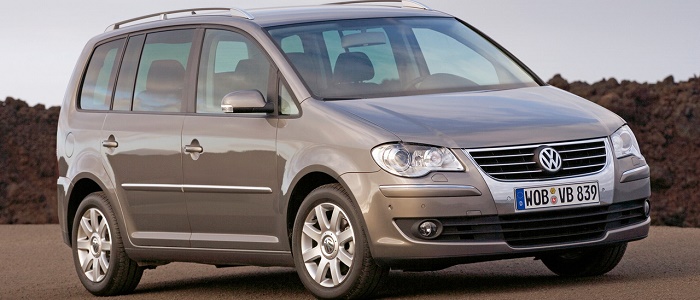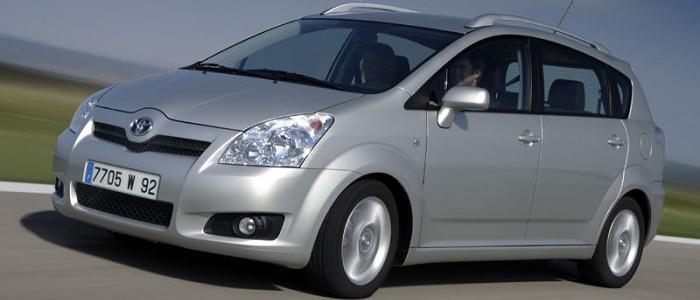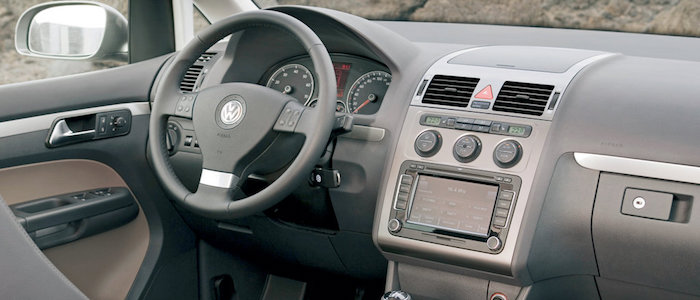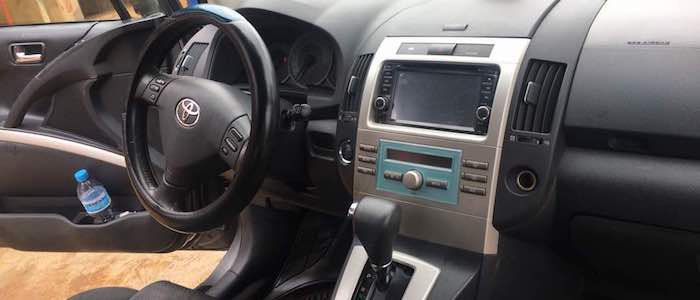Compare two cars
Compare any two cars and get our Virtual Adviser™ opinion
Dimensons & Outlines
Check a car with 30% off a report
Engine
Performance (manual gearbox)
Performance (automatic gearbox)
Expenses
Virtual Adviser's™ opinion
Well, these are two pretty similar cars we have here! It's only details that could potentially make the difference. Considering they both belong to the mpv segment and utilize the same 5-door MPV body style and the front wheel drive system, it all comes up to the specific diesel engine choice they offer. The first one has a Volkswagen-engineered powertrain under the hood, a 4-cylinder, 8-valves 140hp unit, while the other one gets its power and torque from a 4-cylinder, 16-valves 136hp engine designed by Toyota.
SafetyThe first thing to look into here would be the results from European New Car Assessment Programme (Euro NCAP) tests performed on the two cars. Good thing is that both vehicles got tested, with the Volkswagen being a slightly better choice apparently. Still, apart from the official crash test results there are other things we need to be aware of. Both vehicles belong to the mpv segment, which is generally a good thing safety-wise, but that fact doesn't break the tie between the two cars. Furthermore, when it comes to weight, a factor that most people underestimate, the German car offers a marginal difference of 4% more metal.
ReliabilityReliability is not the best thing to consider on the make level, but it is worth mentioning that Toyota does have a slight advantage, all the models observed together. That's the official data, while our visitors describe reliability of Volkswagen with an average rating of 4.2, and models under the Toyota badge with 4.6 out of 5. Unfortunatelly, I don't have enough insight that would allow me to comment in more details on the specific models level. That apart, owners of different cars powered by the same engine as the German car rank it on average as 4.4, while the one under the competitor's bonnet gets 3.8 out of 5.
Performance & Fuel economyToyota is a bit more agile, reaching 100km/h in 0.2 seconds less than its competitor. Still, it lacks the power to win the top speed competition, topping at 195 kilometers per hour, 5km/h less than the other car. When it comes to fuel economy things look pretty much the same for both cars, averaging around 6.2 liters of fuel per 100 kilometers (46 mpg), in combined cycle.
Verdict
Toyota appears just a bit more reliable, although the difference is truly marginal. The most important thing when deciding between any two vehicles should always be safety, both passive and active. In my opinion, everything taken into account, the German car offers much better overall protection, which launches it ahead of the other contender. When it comes to performance, both vehicles provide similar experience, so I wouldn't point any of them out. the German car still consumps less fuel, which needs to be taken into consideration. All together, there's not much more to say, in this case I wouldn't even consider anything but Volkswagen. Anyway, that's the most objective conclusion I could've came up with and it's based solely on the information found on this website. Aspects such as design, practicality, brand value and driving experience are there for you to measure them out. In case you have two minutes to spare I invite you to define your needs, desires and budget and see which car would be chosen by the virtual adviser™, out of 12.000+ vehicles we currently have in our database.

































